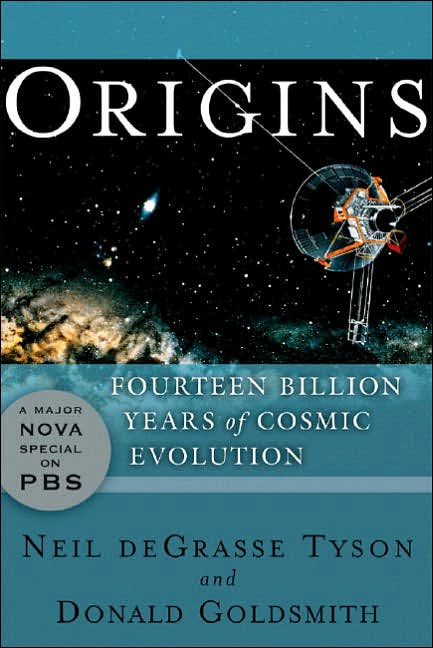Now that I have settled back into the day-to-day life of school, I can calmly return to writing. I will do something I have done before and it really tested my scientific beliefs. An in depth analysis of the book of choice for a general look at cosmology. Origins is a book that has long been talked about by many contemporary scientists and researchers across the planet. While reading the first few chapters, I discovered that it is extremely well-written, to-the-point prose that binds all the files and data related to cosmology and defines it as a science subject. However at times it does prove to be hard reading. Never before have I seen such a inaccurate description on the back cover of a single book. It is not an adequate book for the average reader. It contains a lot of complex terms and information that take some time to mull over. That is probably why I'm dividing this review in parts. Don't know how many there will be in fact. I've only reached chapter 5 and it's been 3 weeks.
Most of the text has been enlightening to say the least. I have learned more from this book than I have from school in 3 years of non-stop studying. Not only does the book include the standard scientific fact but it is also interlaced with many other hard to read messages and opinions. Unlike the Bill Bryson novel I have reviewed some time ago it does not feel like a novel with story. It is more of a textbook with smaller letters and no pictures. Ok, maybe there are some images in the middle but they do not correlate with the rest of the story, if I can even call it such.
As science books go this one had a clever twist to it. From the Big Bang it described every millionth of a second in astounding detail. The authors try to reconcile two of the most incompatible branches of physics: quantum mechanics and general relativity. Although I do not know these theories in much detail I have a gist of it. By the looks of it I still have much to learn. Another great point that the book makes is antimatter. Each particle of ordinary matter contains a antimatter particle. Both of these particle destroy themselves leaving behind nothing but photons. Thankfully, there are about a millionth of a percent more ordinary matter. This makes the universe the way it is. The concept and discovery of CBR (Cosmic Background Radiation) is also one of my personal favorites.
The above extract is from the publisher's own description of the book. The first sentence in itself is aimed for marketing purposes since it is completely and outrageously untrue. The giddy humor is what made me start laughing in the first place. Good job publisher! The next part is somewhat true even though I have not reached the end of the book, so I don't know if they do make a convincing statement about aliens. I will not read to find out. On a positive note, the authors do find the perfect balance in shaping the enormity that is the universe and how it was formed.
I am terribly sorry that this post is so short I will try to make up for it next time. This book has been an interesting reading experiment but I would not recommend it to anybody. Buy at your own expense and displeasure. Although if you are a rocket scientist this will probably be the book for you. If not stick to what works. Mags.




1 comments:
i love nick
Post a Comment